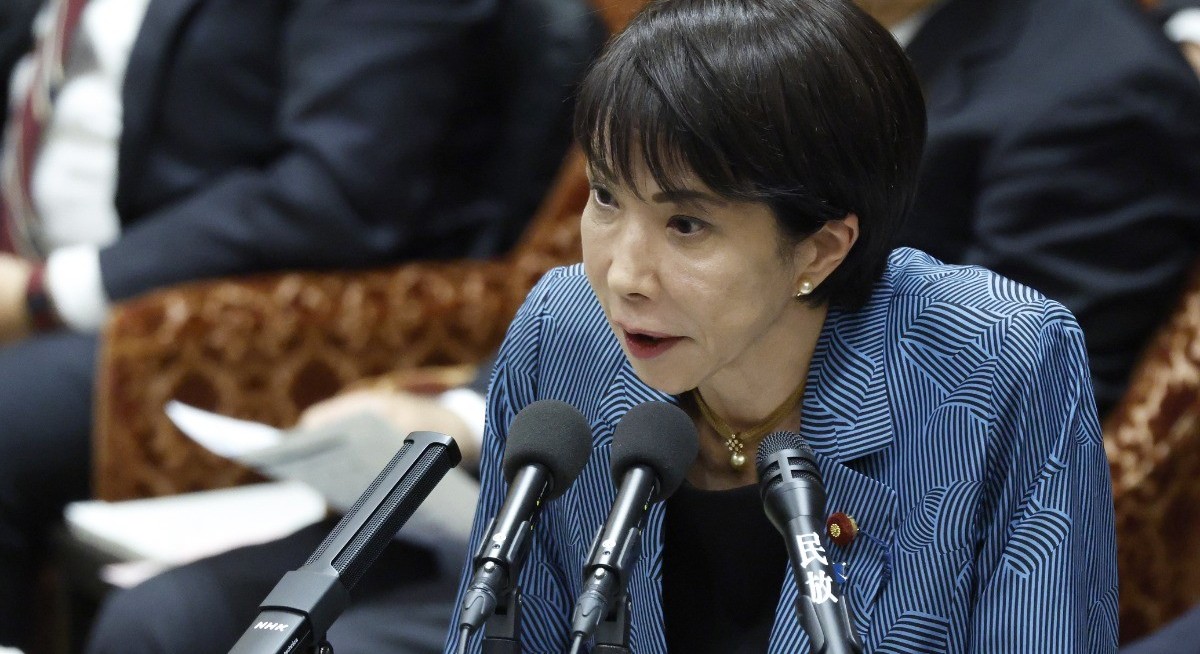(Nov 14): Japanese Prime Minister Sanae Takaichi blamed companies for focusing too much on shareholders and not enough on raising wages in comments that might unsettle investors who have helped drive Tokyo stocks to record highs this year.
“I think there has been a trend of too much focus on shareholders. I will revise the corporate governance code to encourage companies to appropriately distribute resources not just to shareholders but to employees,” she said on Friday in response to questions in Parliament that raised the issue of how to increase the labour share of income.
While underscoring Takaichi’s push for companies to keep raising wages at a time when inflation continues to eat into household incomes, the comments also appear to signal a deviation from the policies touted by her mentor, the late Shinzo Abe. As the prime minister, Abe promoted a new corporate governance code designed to encourage companies to engage more seriously with investors and respect minority shareholders’ rights.
The introduction of the code in 2015 effectively ushered in a period of government support for corporate reform that over the years has added billions of dollars to the market, lured activists and driven a surge in deal-making in Japan.
In one of the latest iterations of that direction, in 2023 the Tokyo Stock Exchange started a campaign to highlight companies that had taken steps to raise their stock price, putting pressure on those that hadn’t.
Companies’ efforts to boost their capital efficiency have drawn record numbers of activist investors to Japan’s market — they bought over US$6.6 billion worth of Japanese stocks in 2024. Japan saw the second-largest number of activist campaigns after the US last year.
See also: Japan to issue over US$73.5 bil in new bonds to fund stimulus
Takaichi’s comments unexpectedly dampen investor expectations that she may double down on Abe’s shareholder friendly approach.
“Foreign investors who favour shareholder primacy may take these comments to mean that Japan’s corporate governance reforms are backsliding,” said Jumpei Tanaka, the head of investment strategy at Pictet Asset Management Japan. “That’s far from good news,” he added.
See also: Japan approves US$135b stimulus to mitigate inflation pain
Last month, a government-led panel debating the revision of the corporate governance code kicked off just as Takaichi became Japan’s new leader. One of the expert members of the panel pointed out that while shareholder returns have greatly improved in the past decade, growth in wages and capital expenditure has remained limited. Still, another member called for a strong focus on return on equity, suggesting opinions are divided.
Takaichi added on Friday that she considered the excessive hoarding of capital by firms to be a problem, and said she wanted companies to effectively use it to invest in people including through wage hikes.
Japan’s corporate retained earnings stood at JPY630 trillion in the quarter ended June according to Finance Ministry data — an amount that’s larger than the nominal economy for the year ended March.
“I would like to see firms conduct business not just thinking about clients, but also considering their contribution to the broader society,” she added.
Japan’s nominal wages have continued to rise, but have consistently lagged behind price gains. With real wages mostly falling for the past three and a half years as inflation jumped up, Takaichi is likely conscious of the fact that voter frustration over inflation has contributed to the fall of two of her predecessors.
The broader situation leaves businesses disjointed over what they should be doing, according to Kazuhiro Sasaki, the head of research at Phillip Securities Japan Ltd.
“From the perspective of companies, they might be asking ‘do we look towards the government’s direction, or do we look towards investors?” he said. “It’s tough to navigate unless there’s some logical cohesion.”
Uploaded by Tham Yek Lee





